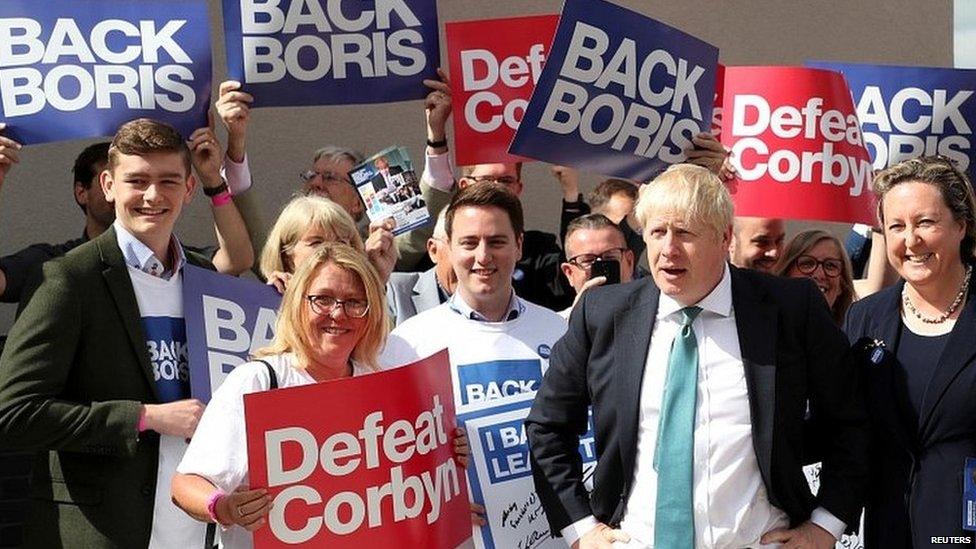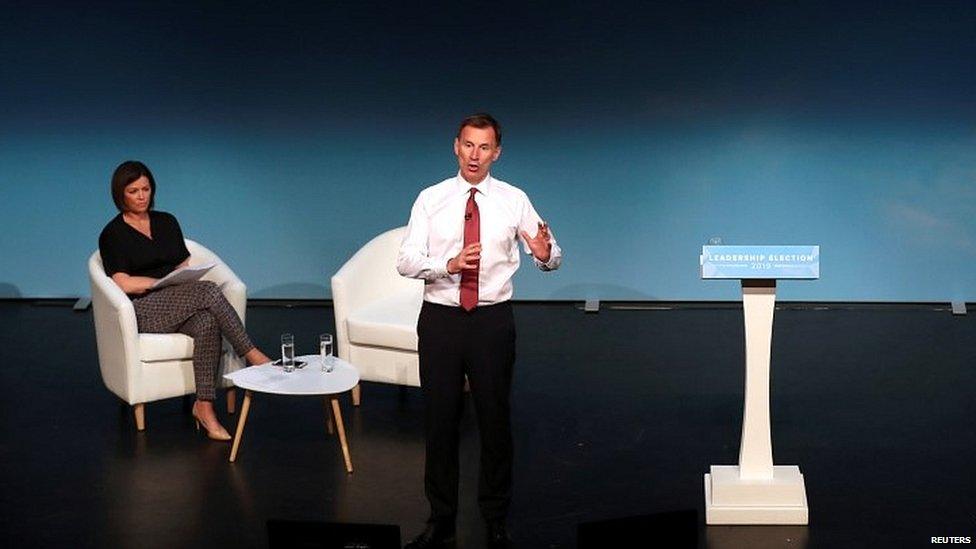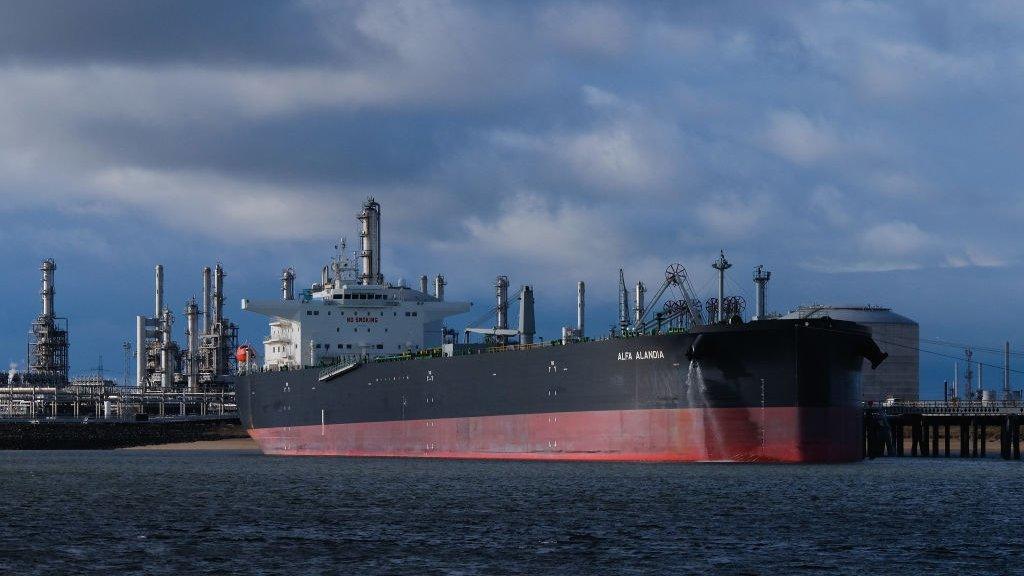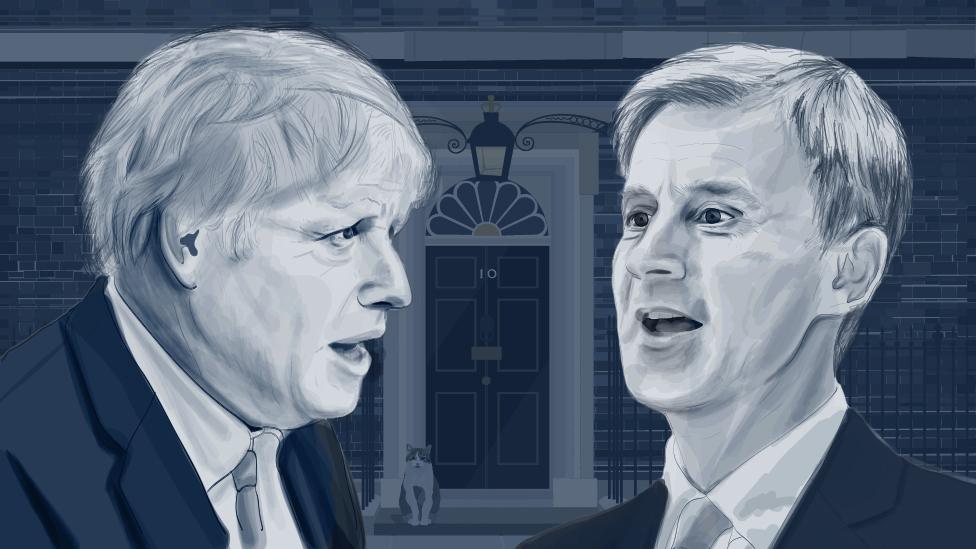Tory leadership race: Members begin voting for next PM
- Published
- comments
Who are the people who will choose the next prime minister?
Conservative Party members have begun voting for their new leader as Boris Johnson and Jeremy Hunt continue to make their pitches for the top job.
The party's 160,000 or so members have started receiving their ballot papers to choose the next prime minister.
At a hustings in County Durham, Mr Johnson announced that as prime minister he would launch a review into setting up free ports across the UK.
And Mr Hunt has won the backing of former prime minister Sir John Major.
Sir John, who opposes Brexit, said he could not vote for someone who had "misled the country" and the UK needed a "serious leader for serious times".
The winner of the contest is to be announced on 23 July and will take over from Theresa May a day later.
The two candidates have been facing questions from members in Darlington before travelling to an evening event in Perth, Scotland.
As they did so, Conservative members - including many MPs - posted messages on social media of their ballot papers.
'Return to sender'
Supporters of Mr Johnson, the former Mayor of London and foreign secretary, urged people to return their papers as soon as possible.
Allow X content?
This article contains content provided by X. We ask for your permission before anything is loaded, as they may be using cookies and other technologies. You may want to read X’s cookie policy, external and privacy policy, external before accepting. To view this content choose ‘accept and continue’.
Allow X content?
This article contains content provided by X. We ask for your permission before anything is loaded, as they may be using cookies and other technologies. You may want to read X’s cookie policy, external and privacy policy, external before accepting. To view this content choose ‘accept and continue’.

The first, and as yet, only confirmed head-to-head TV debate between the two men, will take place on Tuesday 9 July.
Setting out his plans to bring more jobs and investment to the North East, Mr Johnson signalled his backing for free ports - small free-trade zones, sometimes called special economic zones, in which the normal tax and tariff rules of the country in which they are based do not apply.

Boris Johnson was in Darlington for his latest hustings

Mr Hunt called for a massive expansion of electric car charging points
The ex-foreign secretary said they would be "an excellent way to boost businesses and trade in regions that Westminster has neglected to pay attention to for far too long".
Mr Johnson dismissed claims that Downing Street sought to withhold sensitive information from him. He told activists he was "extremely dubious about the provenance of the story", claiming it was "not true".
When asked to give a time in his political life when he had set aside self-interest for the benefit of the country, he replied it was "obviously possible to make more money by not being a full-time politician".
Britain's next prime minister: what young Tories made of Hunt and Johnson
He also said becoming prime minister would mean he might be unable to complete a book he has been writing.
"I will be depriving myself of the joy of completing that work on Shakespeare as fast as I would like," he said.
'Serious leader'
At the same event, Mr Hunt was asked for the last time he had let someone down.
"I fear I'm letting down Nazanin Zaghari-Ratcliffe every single day she remains in jail," he replied.
Sir John Major: Why I am backing Jeremy Hunt
The British-Iranian woman was jailed for five years in 2016 after being convicted of spying, which she denies.
Mr Hunt, who also promised to undertake a review of spirits duty to help the "Scotch whisky boom", has won the endorsement of one of the Conservatives' two living ex-prime ministers.
Sir John Major told the BBC's Hardtalk show "we need a serious leader for serious times".
"I cannot vote for someone who is part of the Brexit campaign that misled the country so I will offer my vote for Jeremy Hunt," he said.
Asked if he trusted Mr Johnson he said, "I don't know him very well but I do find that many of the things that have been said by Boris Johnson and by many others to be in conflict with reality as I understand it.".
- Published5 July 2019

- Published5 July 2019

- Published18 July 2019
